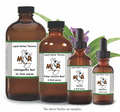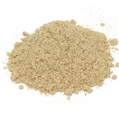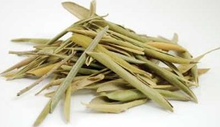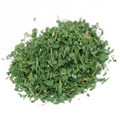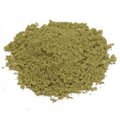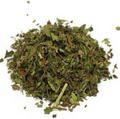 Loading... Please wait...
Loading... Please wait...- Home
- Bulk Herbs
- Herbs (O-P)
- Olive Leaf C/O
- Home
- Herbs - Certified Organic
- O-P
- Olive Leaf C/O
Product Description
Olive Leaf, Whole
Certified Organic- Tunisia
Also Known As – Olea europaea
Overview - The olive tree is native to the Mediterranean, parts of Asia and parts of Africa. The food has been a very important staple in these regions. Italy raises trees primarily for oil, while Spain grows the largest of the fruits. The leaves are an attractive silver-green. The tree blossoms with small white flowers before producing the fruit.
Medicinal Uses - Olive can fight viruses, bacteria and parasitic infestations. It has been used against malaria. The herb may help lower blood pressure, increase blood flow through the coronary arteries, help arrhythmias and help prevent intestinal muscle spasms. It can help build immunity and lower cholesterol. Some say that it can help control hyperactivity and calm allergies.
Other Uses – Olive oil is used extensively in cooking. It is sometimes used as a carrier oil to dilute essential oils for massage as well. This herb can also be beneficial for pets and animal treatment.
Herbs to Combine/Supplement - Combine olive leaf with lemon balm, lavender flowers, rose petals, spearmint leaf, St John's wort, marjoram and honey for an herbal tea that will promote a feeling of well-being.
- If you are stressed, try blending the herb leaf with chamomile, lemon balm, catmint, lavender flowers, peppermint leaf, rose petals, lemongrass, nutmeg and honey for a relaxing herbal tea.
Parts Used - The bark, the leaves and the oil pressed from the fruit are all used medicinally.
Precautions - Pregnant women should not take olive leaf. Likewise if you have kidney stones. Be cautious if you have low blood pressure or are hypoglycemic.
Suggestions - Olive can be taken as capsules, oil or as an herbal tea. Two capsules once a day with water at either the morning or mid-day meal is a standard dosage. The herbal tea is made from the leaf and has a very unique flavor. Lightly steeping the leaf will give a soothing flavor, while longer steeping time will create a stronger herbal tea that may be mellowed by adding lemon or milk. The oil is used in cooking as a healthy alternative to other oils.
Disclaimer - The information presented herein by Mountain Maus’ Remedies is intended for educational purposes only. These statements have not been evaluated by the FDA and are not intended to diagnose, cure, treat or prevent disease. Individual results may vary, and before using any supplements, it is always advisable to consult with your own health care provider.







